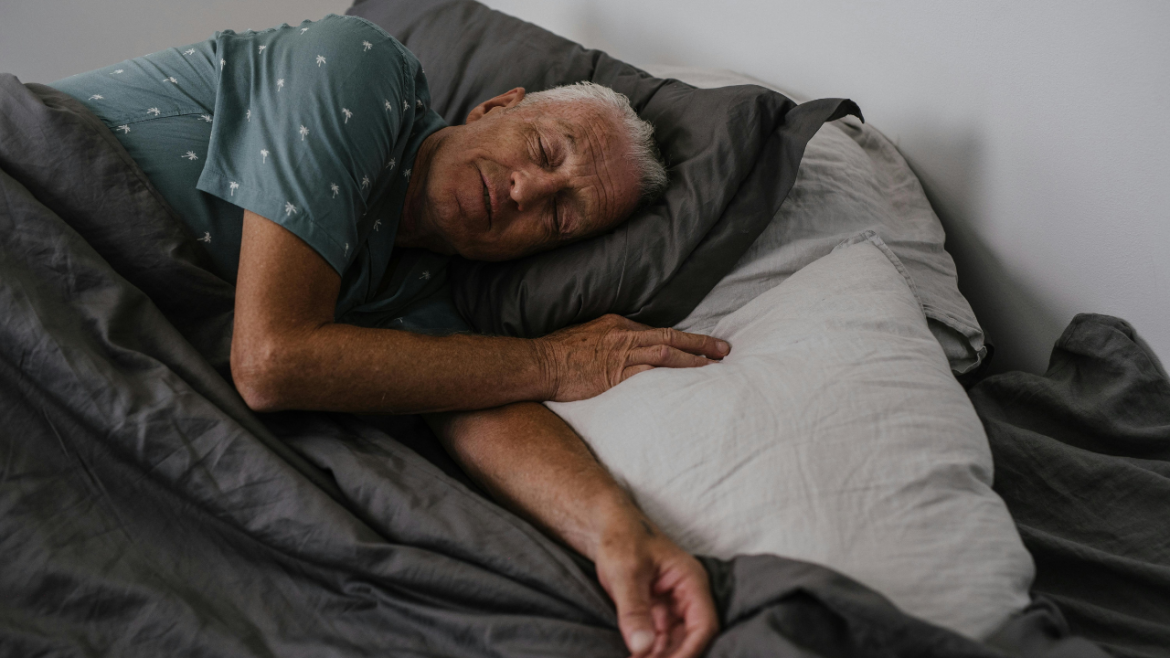Did you know that Leading Edge Senior Care has a Dementia Support Group? We meet monthly in Mesa. For more details <click here>
What Does It Mean For Seniors To Be Bedbound?
Being bedbound signifies a significant shift in the life of a senior. It often arises from severe health issues such as advanced arthritis, stroke, or debilitating injuries. This state entails being confined to bed, either permanently or for extended periods. The implications are profound, not only for the seniors but also for their caregivers and families.
The Physical Impact
When seniors become bedbound, their physical health is deeply affected. Muscles weaken due to lack of movement, leading to atrophy. Joints stiffen, making any slight movement painful and difficult. Additionally, prolonged immobility increases the risk of pressure sores, also known as bedsores. These painful skin ulcers can become severe if not properly managed. The circulatory system is also compromised, increasing the risk of blood clots, particularly deep vein thrombosis.
Respiratory issues may develop, as lying flat for extended periods can lead to fluid accumulation in the lungs, increasing the risk of pneumonia. Digestive problems, including constipation and poor appetite, often arise, further complicating the senior’s overall health.
Emotional and Psychological Effects
The emotional toll of being bedbound is equally significant. Seniors often experience feelings of isolation and loneliness, particularly if they live alone or have limited social interactions. The inability to engage in previously enjoyed activities can lead to depression and anxiety. The loss of independence is a heavy burden, creating a sense of helplessness and frustration.
Family members and caregivers must recognize these emotional challenges and strive to provide not just physical care but also emotional support. Encouraging regular social interactions, whether through visits, phone calls, or virtual connections, can alleviate some of the emotional strain.
The Role of Caregivers
Caregivers play a crucial role in the lives of bedbound seniors. Their responsibilities extend beyond basic physical care to include emotional support and medical management. Ensuring the senior maintains a healthy diet, stays hydrated, and adheres to medication schedules are essential tasks. Regular repositioning helps prevent bedsores, while gentle exercises and massages can improve circulation and joint flexibility.
Caregivers must also monitor for signs of depression or anxiety, providing comfort and companionship to enhance the senior’s emotional well-being. They serve as advocates, ensuring the senior receives appropriate medical care and support services.
Creating a Comfortable Environment
The immediate environment of a bedbound senior is crucial. The bed should be comfortable, with a supportive mattress and cushions to prevent pressure sores. Clean, breathable bedding should be regularly changed to maintain hygiene. The room should be well-ventilated, with natural light to promote a positive atmosphere.
Accessibility is key. Items such as water, tissues, and personal belongings should be within easy reach. Adaptive devices, such as over-bed tables and grab bars, can enhance the senior’s comfort and independence. Personal touches, like family photos and favorite books, can create a homely and comforting space.
Medical Management
Regular medical check-ups are vital for bedbound seniors. Healthcare professionals can monitor and manage chronic conditions, prescribe appropriate treatments, and offer guidance on preventing complications. Home health services, including visits from nurses and therapists, provide essential care and support.
Technology can also play a role in medical management. Telehealth services allow for virtual consultations, reducing the need for the senior to travel. Remote monitoring devices can track vital signs, alerting caregivers and medical professionals to potential issues.
The Importance of Family Involvement
Family involvement is invaluable in the care of bedbound seniors. Regular visits provide emotional support and companionship, reducing feelings of isolation. Family members can assist with caregiving tasks, offering respite to primary caregivers.
Open communication within the family ensures everyone is aware of the senior’s needs and care plan. This collaborative approach fosters a supportive environment, enhancing the senior’s quality of life.
Conclusion
Being bedbound profoundly impacts seniors’ lives, affecting their physical, emotional, and psychological well-being. It requires comprehensive care, encompassing medical management, emotional support, and a comfortable living environment. Caregivers, family members, and healthcare professionals must work together to ensure bedbound seniors receive the care and support they need.
Through understanding, compassion, and coordinated efforts, we can enhance the quality of life for bedbound seniors, helping them navigate this challenging phase with dignity and comfort.

